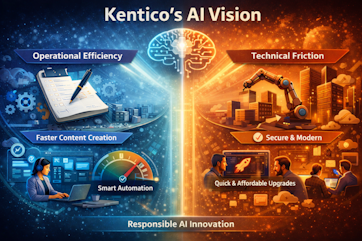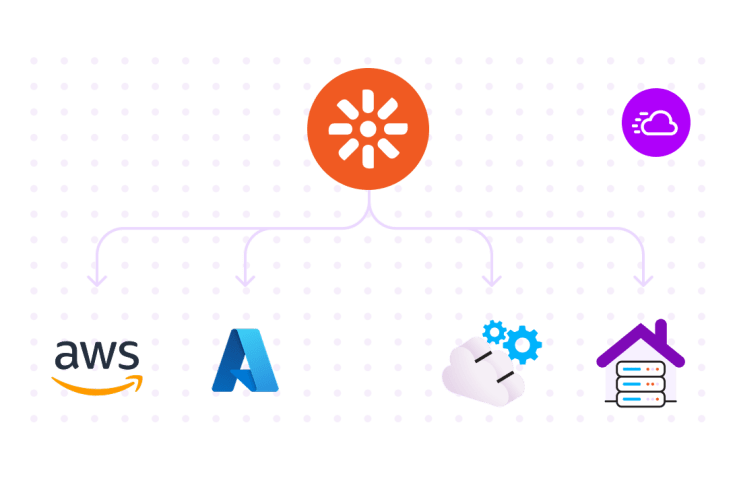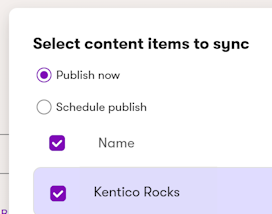9 Reasons Why Your Company Needs a Wiki
I’m a huge fan of using a wiki to help organize our business and it’s various functions, such as creating software. In fact I usually end of recommending the use of a wiki to almost all my clients who do not already have one.
If you are not familiar with what a wiki is, let me give a simple definition right here:
A wiki can be defined as a web page or web site that allows a community of users to add, edit, and maintain content that usually surrounds a given topic or topics.
It’s a simple concept really, a web page that holds content, that’s almost no different than any web page out there. But the real difference between any old web page and a wiki is that anyone can edit a wiki right on the fly, while a web page is normally maintained by one person. In fact the more users that a wiki has adding and editing content, the more relevant and informational that wiki will become.
Now that we know what a wiki is let me get on to why I think your company could be better off than than it is today if they implemented a wiki.
1. Knowledge is power
Collecting all the pieces of of knowledge from a persons head is a tough thing to do, no matter what the topic or project is. The old saying goes there is no substitute for experience and I firmly believe that. However, having a place that becomes the fountain of knowledge for you organization is very powerful.
The wiki becomes a repository of knowledge that all employees can contribute to and learn from. The more knowledgeable your employees are, the better they can serve your customers, the better they can perform their jobs, and hopefully that leads to making the company more profitable.
2. Documentation can save your life in a pinch
One of the most common uses of having a wiki is to have a single point to document a company, client, or project. The benefit of having a wiki page on a topic, such as a project, is that it is easy to add and maintain small pieces of documentation that sometimes don’t fit well into a full blown spec or project plan. Or sometimes just having a link that gets you to right location of the project plan or latest revision of a quote can be just as important.
A real world example of how having the wiki as a source of documentation for a project can save you goes something like this. Your company completed a project for a client 6 months or so ago. The team member that actually worked on the project got promoted to another job role at another location, or worse yet left the company. Hopefully before that happened that team member wrote down everything you would ever need to get to the source code, login to the production server, or figure out who set the requirements on the client side in the first place. That wiki page may save your butt when the client calls and asks why his web page is displaying an 500 Internal Server error.
3. Searching for information is tedious
How many times have you played out this scenario. A customer asks you about a detail of how business process X works. Let’s say X is the process of buying a product from an online ecommerce site that you maintain.
What’s the first thing you normally do ? Maybe click the help link on the shopping cart page? Maybe you start searching your project folder to find the right solution or project file for Visual Studio to open up and look through some comments for the GetProduct method? Or god forbid, you might open up windows explorer and press F3 to search your network file system looking for a word document or text file that contains the ecommerce API and/or API guide?
If you are like me then you have hundreds of files and/or folders that Windows has to search through and it takes forever, while most of the time not producing the search results you need. And most of the time if you do end up finding the right place the answers within the document don’t help out all that much. This I think is the definition of a tedious process.
One of the most important aspects of a wiki, is that all the content is searchable. Usually if the wiki is a good one, it will have a built in search engine behind the scenes that indexes every word and phrase on every page. That way when you perform a search it is usually as fast as popping open Google and typing in your topic. The search results are normally weighted to get you to the most important wiki page on that search query. Wikis make searching easy.
4. Crowdsourcing is for real
Wikipedia defines crowdsourcing as the act of outsourcing tasks to a large group of people through an open call. With the technologies that the web has brought us over the last few years this has never been truer or easier to do than right now. This principle holds true in any company no matter what it’s size is.
Years ago it used to be that there was project manager, technical writer, or gasp, even a developer that was in charge of being the primary documentation creator. And let’s face it, most technical people are not great at writing documentation. Here is where crowdsourcing can really transform the way that knowledge is tracked with a tool such as a wiki.
As users come onboard to your company they can read and add to any wiki page they want. As each person contributes the document grows and lives with them, and the information just gets better and better. And guess what you don’t have to have a dedicated technical writer to keep that document up to date, you crowdsourced it.
5. Easier to maintain than Office documents
Don’t mistake me, this is not a comparison of Microsoft Office Word to Open Office Writer. I’m not about to go there. What I am referring to is that the type of documents that need a specific program to edit them or share them, does not help you get your job done faster or better. A wiki is a web app that is available to the whole internet or even only your company’s internal network. No special tool is needed other than a browser and a network connection to get to that data, read it, and make a business decision from that knowledge.
It is flat out easier and faster to add or change a piece of information on a topic as your project of client relationship changes via a wiki. This makes it easier to keep all of your business’s information up to date and accurate.
6. Linking related information is crucial
Another important aspects of wikis are how you get from one wiki page to another. This is done using a linking system. Most wikis allow a user to create a link to another wiki page, or even external web page by placing a square bracket around the phrase that they want to link. The following example illustrates this:
To create a link that looks like this:
BizStream will be architecting this project
You would write in the wiki editor this:
[BizStream] will be architecting this project
A link, or a way to jump around from wiki page to wiki page, is as important to a reader or employee as jumping around from link to link on a Google search result page is. Wikis provide an easy way to do this.
A real world example of this is that at BizStream we keep a wiki page on each company that we deal with, and on that company’s wiki page we always include a project section that contains links to all the project wiki pages that we do for that company. It is really nice to be able to navigate quickly from the top level company page to each of it’s projects and see who is leading them, or who is the main customer contact for that project.
It ends up looking like
Company: BizStream
Open Projects
- BZS-2010-01: Kentico CMS Website Implementation
- BZS-2010-02: Custom Sharepoint Web Part Integration
- BZS-2010-03: Database Maintenance Plan Review
7. Built-In document revision and revision control
The commenting and revision system in most word processing tools is overly complicated in my opinion. I have seen enough red lines and red arrows to last for the rest of my lifetime. Also what about when the user forgets to turn tracking changes on, or overwrites the file in the folder. This can become an administrative nightmare.
Normally wikis contain a simple and built-in method of storing all the different revisions of a wiki page. Most good wikis also give you a tool to see the differences between each revision all on a single web page, i.e what was added and removed. Wiki Administrators usually have the power to rollback to a certain revision if something was lost, or if an anonymous user is being malicious and tries to hijack some content. Wikipedia is famous for it’s moderator groups and level of standards they hold to a page and it’s content.
8. Categories / Tags easily organize your content
The popularity of tagging a photo, page, or email has become increasingly useful and popular in almost all things these days. Take FaceBook for example they let you tag almost anything. You can tag each person in a photo, and that tag becomes a link right in that photo, and anyone can click on that person right there and be taken to their profile. It’s just an easy way to organize links or content really.
The reason that tags become useful is that you can narrow down your search results or subscription topics to just what you care about. Even this blog for another example. I have a lot of personal blog posts here, but if you don’t really want to know about them you can just subscribe to the the technical categories or tags and see what you want.
One tip here though. Don't get too hung up on organizing the content into a very structured layout. This isn't a file system it's meant to be a free flowing system. Just start creating your pages and adding links as you go. The content of the page is way more important than having it look right.
9. The cost is nothing for all the benefits you get
Business is all about using your resources wisely. And what’s wiser than using something that is free. There are many free open source wiki’s you can use. My favorite is ScrewTurn Wiki.
I actually have a lot of reasons why I like and use ScrewTurn as my wiki of choice. But this post has already grown to be a bit bigger than I originally thought so I will explain why next time. So there you have it. My 9 reasons why I think your company needs a wiki.
Please leave any feedback or questions you have in the comments.










